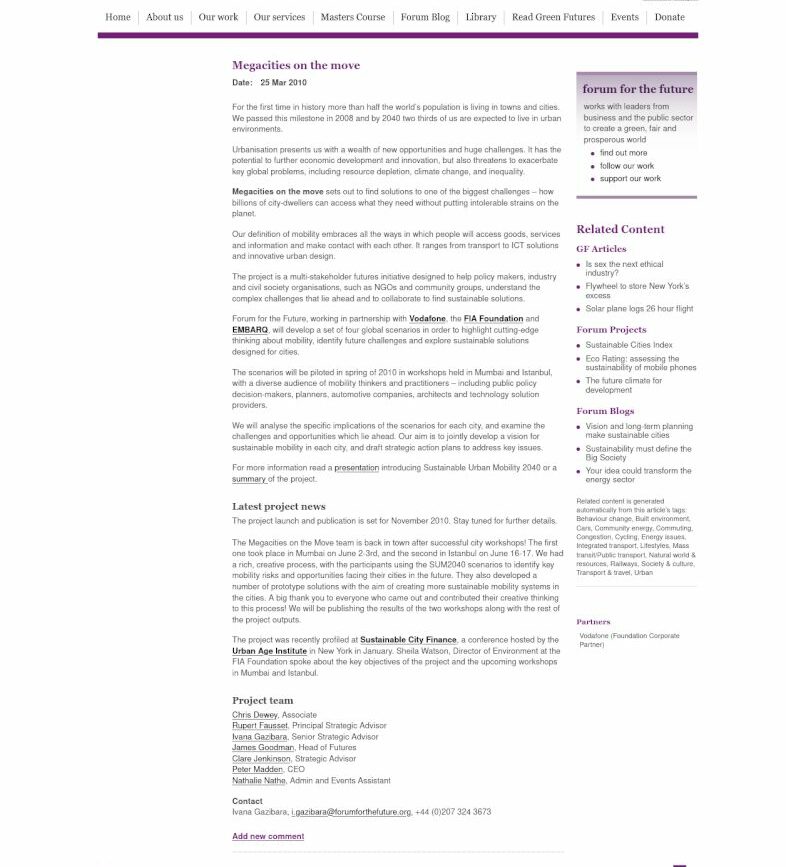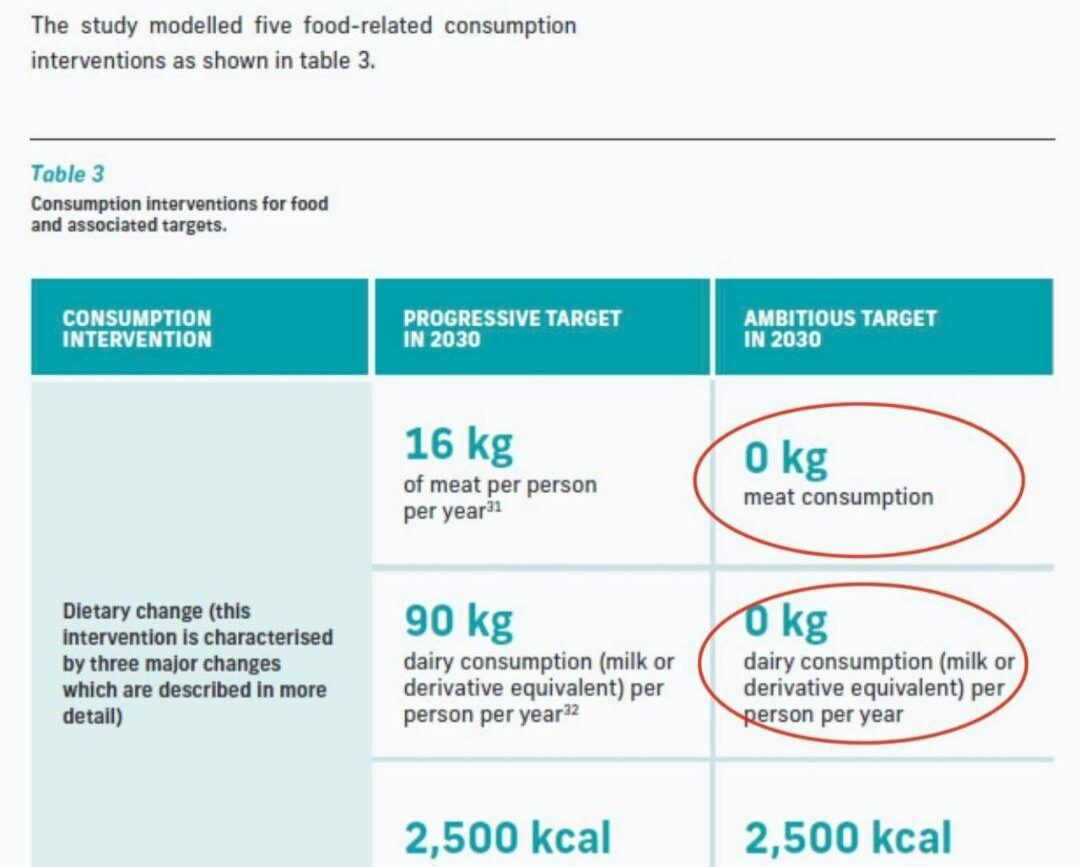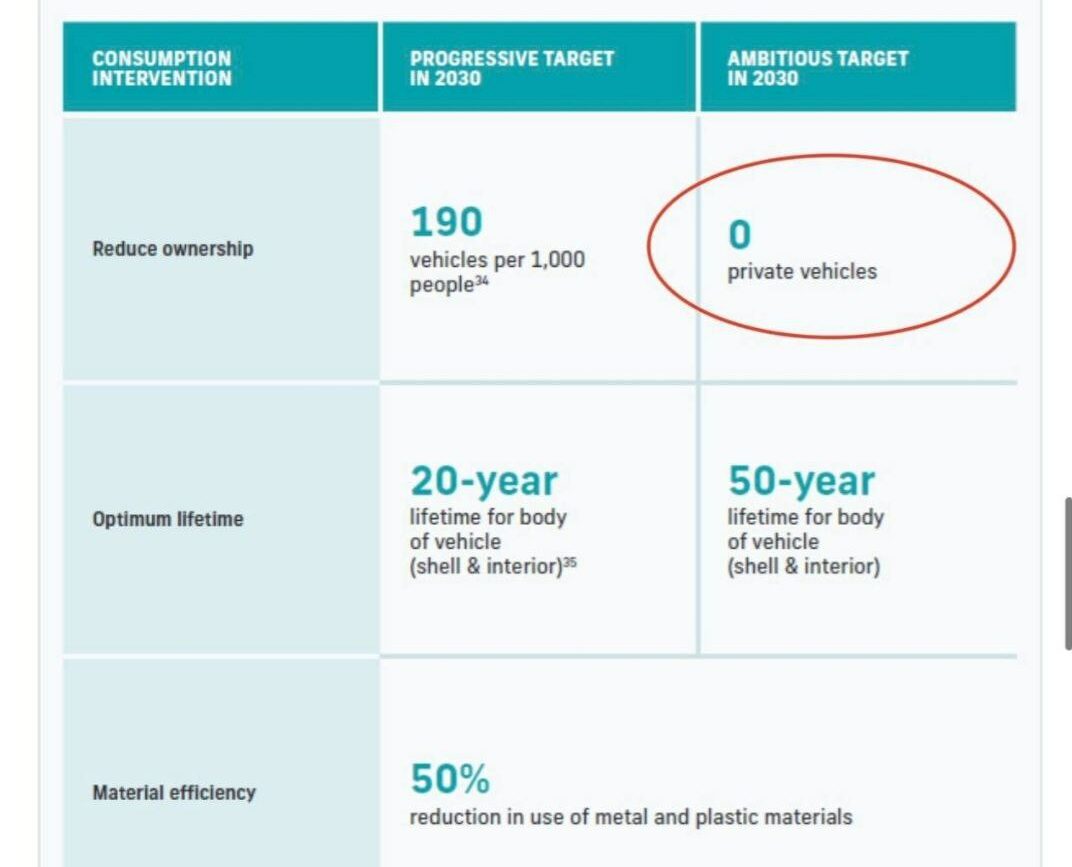Britons would be limited to 20,000 digital pounds ($24,000) each if the country goes ahead with a digital currency, Bank of England Deputy Governor Jon Cunliffe said on Tuesday.
…Money above the cap would be “swept” into a customer’s commercial bank account given that a digital pound would not be a means for storing wealth, he told members of UK Finance, a banking industry body.
The Great Reset

The Great Reset is a vision championed by the World Economic Forum for a post-human Fourth Industrial Revolution. It was publicly unveiled at a meeting held in June 2020 which brought together high-profile business and political leaders, convened by Charles, Prince of Wales and the WEF.
Investigative journalist James Corbett explores this in his video, Your Guide to The Great Reset.
Browse the articles related to this topic below.
Join our community on Guilded.
SOUTHEND Council has ruled out ever signing up to a 15-minute city scheme which restricts residents’ ability to travel freely across the city.
Councils across the country are signing up to a net zero 2030 scheme and some are including plans for 15-minute cities where residents have everything they need within a 15-minute walk, cycle of public transport ride.
LTN schemes emerged from ‘15-minute city’ ideology: “a residential urban concept in which most daily necessities can be accomplished by either walking or cycling from residents’ homes”. A lovely idea, but if you can’t cycle all your food shopping home, or lug it back because you’re too old or burdened with toddlers, you become a casualty of environmental piety.
It isn’t mad, however, to regard the WEF as a dangerous force in global politics. The WEF is a dangerous force in global politics. To adapt Joseph Heller, just because you are paranoid, doesn’t mean the WEF isn’t after you. A shared distrust of the WEF brings together anti-capitalists on the left and culture-warriors on the right. But that distrust is based on a misunderstanding of what the WEF is these days really all about.
For many WEF critics, the vileness of the organisation can be encapsulated in one word: ‘neoliberalism.’ It’s a term that conjures up images of plutocrats and untrammelled markets ravaging the planet and exploiting blue-collar folk in the name of profit. Funnily enough, Chairman Schwab agrees with that assessment of the world’s ills. Once upon a time, the WEF prioritised the necessity and benefits of economic globalisation. That has not been the case for many years, however. In October 2020, Schwab stated that:
[S]hibboleths of our global economic system will need to be re-evaluated with an open mind. Chief among these is the neoliberal ideology. Free-market fundamentalism has eroded worker rights and economic security, triggered a deregulatory race to the bottom and ruinous tax competition.
http://archive.today/2023.01.02-193731/https://www.spectator.co.uk/article/the-davos-man-cometh/
In a world of fossil fuels and expensive energy, the only solution is tightly planned and controlled urban transport.
This video released on the animator’s channel on 23 September 2011. A full archive of the Forum for the Future article published 25 Mar 2010 can be found below:
Megacities on the move
For the first time in history more than half the world’s population is living in towns and cities. We passed this milestone in 2008 and by 2040 two thirds of us are expected to live in urban environments.
Urbanisation presents us with a wealth of new opportunities and huge challenges. It has the potential to further economic development and innovation, but also threatens to exacerbate key global problems, including resource depletion, climate change, and inequality.
Megacities on the move sets out to find solutions to one of the biggest challenges – how billions of city-dwellers can access what they need without putting intolerable strains on the planet.
Our definition of mobility embraces all the ways in which people will access goods, services and information and make contact with each other. It ranges from transport to ICT solutions and innovative urban design.
The project is a multi-stakeholder futures initiative designed to help policy makers, industry and civil society organisations, such as NGOs and community groups, understand the complex challenges that lie ahead and to collaborate to find sustainable solutions.
Forum for the Future, working in partnership with Vodafone, the FIA Foundation and EMBARQ, will develop a set of four global scenarios in order to highlight cutting-edge thinking about mobility, identify future challenges and explore sustainable solutions designed for cities.
The scenarios will be piloted in spring of 2010 in workshops held in Mumbai and Istanbul, with a diverse audience of mobility thinkers and practitioners – including public policy decision-makers, planners, automotive companies, architects and technology solution providers.
We will analyse the specific implications of the scenarios for each city, and examine the challenges and opportunities which lie ahead. Our aim is to jointly develop a vision for sustainable mobility in each city, and draft strategic action plans to address key issues.
For more information read a presentation introducing Sustainable Urban Mobility 2040 or a summary of the project.
Latest project news
The project launch and publication is set for November 2010. Stay tuned for further details.
The Megacities on the Move team is back in town after successful city workshops! The first one took place in Mumbai on June 2-3rd, and the second in Istanbul on June 16-17. We had a rich, creative process, with the participants using the SUM2040 scenarios to identify key mobility risks and opportunities facing their cities in the future. They also developed a number of prototype solutions with the aim of creating more sustainable mobility systems in the cities. A big thank you to everyone who came out and contributed their creative thinking to this process! We will be publishing the results of the two workshops along with the rest of the project outputs.The project was recently profiled at Sustainable City Finance, a conference hosted by the Urban Age Institute in New York in January. Sheila Watson, Director of Environment at the FIA Foundation spoke about the key objectives of the project and the upcoming workshops in Mumbai and Istanbul.
Project team
Chris Dewey, Associate
Rupert Fausset, Principal Strategic Advisor
Ivana Gazibara, Senior Strategic Advisor
James Goodman, Head of Futures
Clare Jenkinson, Strategic Advisor
Peter Madden, CEO
Nathalie Nathe, Admin and Events AssistantContact
Ivana Gazibara, [email protected], +44 (0)207 324 3673

We are nearing a turning point for democratic support for environmentalism. Gordon Brown’s 2008 Climate Change Act legislated to slash CO2 emissions by 80 per cent by 2050, a seismic shift pushed through with little debate but much superficial public approval. Theresa May strengthened this to 100 per cent by 2050, the “net zero” target; again, the public liked the sound of this, if not of Mrs May. China will continue to increase its emissions by more than we cut ours, but our entire ruling class has signed up to this iron-clad legal framework, with no dissent tolerated.
Published June 2019
C40 is delighted to publish this pioneering piece of thought leadership, The Future of Urban Consumption in a 1.5°C World. The report demonstrates that mayors have an even bigger role and opportunity to help avert climate emergency than previously thought. But to grasp that opportunity, city leaders need to be even more entrepreneurial, creating and shaping markets and engaging in sectors that may not previously have been considered within the domain of city government, and working out how to support their citizens and businesses in achieving a radical, and rapid, shift in consumption patterns.


Published: 27 March 2017
The paper presents a simple framework for the analysis of the macroeconomic implications of de-cashing. Defined as replacing paper currency with convertible deposits, de-cashing would affect all key macroeconomic sectors. The overall macreconomic impact of de-cashing would depend on the balance of growth-enhancing and growth-constraining factors. Starting from a traditional saving-investment balance, the paper develops a four-sector macroeconomic framework. It is purely illustrative and is designed to provide a roadmap for a systematic evaluation of de-cashing. The framework is disaggregated into the real, fiscal, monetary, and external sectors and potential implications of de-cashing are then identified in each sector. Finally, the paper draws a balance on possible positive and negative macroeconomic implications of de-cashing, and proposes policies capable of augmenting its economic and social benefits, while reducing potential costs.
http://archive.today/2022.11.25-093919/https://www.imf.org/en/Publications/WP/Issues/2017/03/27/The-Macroeconomics-of-De-Cashing-44768
ROAD blocks stopping most motorists from driving through Oxford city centre will divide the city into six “15 minute” neighbourhoods, a county council travel chief has said.
And he insisted the controversial plan would go ahead whether people liked it or not.
http://archive.today/2022.11.25-110055/https://www.oxfordmail.co.uk/news/23073992.traffic-filters-will-divide-city-six-15-minute-neighbourhoods-agrees-highways-councillor/
- Privacy war breaks out as suppliers move customers onto PAYG plans remotely
- Move puts them at risk of blackouts if they cannot afford to top-up their balance
- Households are being left in the dark and without heating for weeks at a time
- Some 500 customers believed to have been put on prepayment plans this year
Rishi Sunak has urged the NHS to embrace the use of robots as the health service prepares to cut its workforce by half in a drastic attempt to cut costs.
Studies have been linking red meat consumption to health problems like heart disease, stroke, and cancer for years, but these invariably suffer from methodological limitations.
In an unprecedented effort, health scientists at the University of Washington scrutinized decades of research on red meat consumption and its links to various health outcomes, introducing a new way to assess health risks in the process.
They only found weak evidence that unprocessed red meat consumption is linked to colorectal cancer, breast cancer, type 2 diabetes, and ischemic heart disease, and no link at all between eating red meat and stroke.
http://archive.today/2022.12.30-120015/https://bigthink.com/health/red-meat-cancer-not-health-risk/
It is famous as the home of Britain’s oldest university and students on bicycles — but Oxford is known to its residents for its gridlocked traffic.
Now the council is fighting back with plans to divide the city into six districts from next August with strict rules on how often motorists can drive outside their neighbourhood.
Duncan Enright, the Oxfordshire county councillor leading the policy, said: “Oxford is a medieval city with roads that I can’t even believe were that brilliant during the days of horse and cart. The traffic problems in Oxford are not new, and we are determined to do something about it.”
Its 150,000 residents will be allowed to use their cars as much as they like within their district and will be given free permits allowing them to drive to other districts on 100 days a year. If they exceed this limit, they will be fined, possibly £70 a journey or a day.
http://archive.today/2022.10.23-074157/https://www.thetimes.co.uk/article/oxford-set-to-cut-its-famous-traffic-jams-by-degrees-nqkrd5xhd
Key messages in this report
• Behaviour change is essential for achieving climate and environment goals, and for delivering wider benefits.
• The Government’s current approach to enabling behaviour change to meet climate and environment goals is inadequate to meet the scale of the challenge.
• The public want clear leadership on the areas of behaviour change they should prioritise, and they want the Government to lead a coordinated approach to help them adapt by making change easier and fairer.
• Priority behaviour change policies are needed in the areas of travel, heating, diet and consumption to enable the public to adopt and use green technologies and products and reduce carbon-intensive consumption.
• There is a need for greater leadership and coordination across Government departments and with wider society on behaviour change for climate and environmental goals.
• The Government needs to provide a positive vision and clear narrative on how the public can help achieve climate and environment goals, and to lead by example.
• Information is not enough to change behaviour; the Government needs to play a stronger role in shaping the environment in which the public acts, through appropriately sequenced measures including regulation, taxation and development of infrastructure.
• Fairness is key to effective behaviour change.
• Businesses have a critical role to play in enabling behaviour change through increasing the affordability and availability of greener products and services, and engaging customers and employees.
• Government should also support and celebrate civil society organisations, faith communities and local authorities delivering local behaviour change projects.
• Government should learn from examples of where it has effectively enabled behaviour change, including during the COVID-19 pandemic, as well as from past failures.
“SARS-CoV-2 is not causing mass illness and death.”
On today’s show Mike Yeadon chats about the COVID era and his journey, including whether or not SARS exists. He has evolved a bunch of his views.GUEST OVERVIEW: Mike Yeadon was chief scientist and vice-president of the allergy and respiratory research division of Pfizer.
https://tntradiolive.podbean.com/e/mike-yeadon-on-jerm-warfare-with-jeremy-nell-03-october-2022/
While transport and buildings are the major drivers for emissions in cities, the share of individual emissions is significant.
Personal carbon allowance programs have had limited success due to a lack of awareness and fair mechanism for tracking emissions.
Yet there have been major developments in recent years that could help realise “My Carbon” initiatives.
Published January 2019
Four specific strategies for delivering 21st-century protein
through to 2030 have consequently been identified,
illuminating the most effective “drivers of change” within this context. These strategies suggest a roadmap for delivering 21st-century protein:1. Highlighting the multiple benefits to society of
transforming today’s protein systems2. Promoting pathways to achieve cost parity across
choices that deliver on multiple benefits3. Pursuing an intentional “Transition Decade” using
narratives4. Developing innovation ecosystems and
collaboration platforms for research and action
Much of the hunger literature talks about how it is important to assure that people are well fed so that they can be more productive. That is nonsense. No one works harder than hungry people. Yes, people who are well nourished have greater capacity for productive physical activity, but well-nourished people are far less willing to do that work.
http://archive.today/2022.07.05-223722/https://www.un.org/en/chronicle/article/benefits-world-hunger
What are the roots of the technocratic and transhumanist policies currently being pushed onto society? In this essay, Matthew Ehret traces two centuries of British imperial grand strategists who adapted Thomas Malthus’ system of scientific governance of useless eaters in opposition to the deeper creative impulses of the human species.
Oliver Stone is a filmmaker with 3 Oscar wins and 11 Oscar nominations. His films include Platoon, Wall Street, Born on the Fourth of July, Scarface, JFK, Nixon, Alexander, W, Snowden, and documentaries where he has interviewed Fidel Castro, Hugo Chavez, and Vladimir Putin.
OUTLINE:
0:00 – Introduction
2:54 – Nuclear power
15:52 – Russia and US relations
21:07 – JFK and the Cold War
26:24 – Interviewing Putin
50:02 – Invasion of Ukraine
59:20 – Why Putin invaded Ukraine
1:13:44 – Propaganda
1:21:02 – Interviewing Putin in 2022
1:28:17 – Nuclear war
1:34:28 – Advice on interviewing
1:38:09 – Interviewing Hitler
1:41:30 – Putin interview language barrier
1:42:41 – Love
1:44:36 – Advice to young people
1:47:42 – Mortality
1:48:44 – Regrets
1:50:41 – Meaning of life
Oliver Stone’s The Putin Interviews (2017)
Revealing Ukraine (2019)
Ukraine on Fire (2016)
The Untold History of the United States (2012)
- Chapter 1: World War II
- Chapter 2: Roosevelt, Truman & Wallace
- Chapter 3: The Bomb
- Chapter 4: The Cold War: 1945-1950
- Chapter 5: The ’50s: Eisenhower, the Bomb & The Third World
- Chapter 6: JFK: To the Brink
- Chapter 7: Johnson, Nixon & Vietnam: Reversal of Fortune
- Chapter 8: Reagan, Gorbachev & Third World: Rise of the Right
- Chapter 9: Bush & Clinton: American Triumphalism – New World Order
- Chapter 10: Bush & Obama: Age of Terror
See the full episode playlist on Odysee.